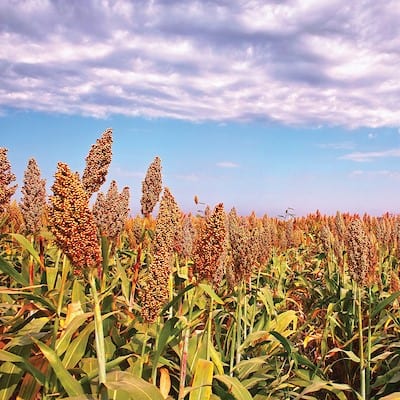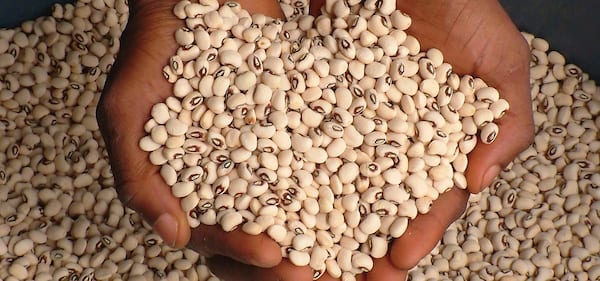Imagine working all year in the field only to have your crop fail. This is the reality for many farmers around the world.
Such crop failures are the reality for Nigerian bean farmers. But now, thanks to a team including the Danforth Center, a new pest-resistant variety has been approved for market, promising smallholder farmers like Chimara a brighter future.
Improving the productivity and profitability of smallholder farming in the developing world has been shown to reduce poverty and increase economic security. The Danforth Center has a mission to improve the human condition through plant science, and our scientists are using plant science to help end hunger and improve livelihoods.
Why It Matters to Us All
Population growth and rising standards of living mean that in just a few decades—by 2050—the world will not have enough land and fresh water to grow the food we need. Shortage can lead to instability and unrest. That’s why the work of the Danforth Center is so important. With your help, Danforth Center scientists are helping to develop drought- and disease-resistant crops so that farmers can grow more food… and sustainably feed the world.
Danforth Center scientists tackle improving crops that benefit the developing world, crops that for-profit companies might pass by. These so-called “orphan crops” include things like:
Historic Breakthrough
This year Nigeria approved a new pod-borer resistant black-eyed pea crop. This historic milestone in the lives and livelihoods of smallholder farmers was facilitated by Danforth Center’s Institute for International Crop Improvement (IICI), which provided regulatory support.
Not only will yields increase dramatically, but farmers can significantly reduce pesticide use, which will benefit farmers' health, as well as the environment.
Donald MacKenzie, PhD Executive Director, IICI
When you support the Danforth Center, you are helping find sustainable solutions to some of the 21st century’s most pressing challenges. Please consider a gift to the Impact Fund today.
The Donald Danforth Plant Science Center is a 501(c)3 nonprofit and depends upon the support of people like you. Your contribution is tax deductible as allowed by law.


